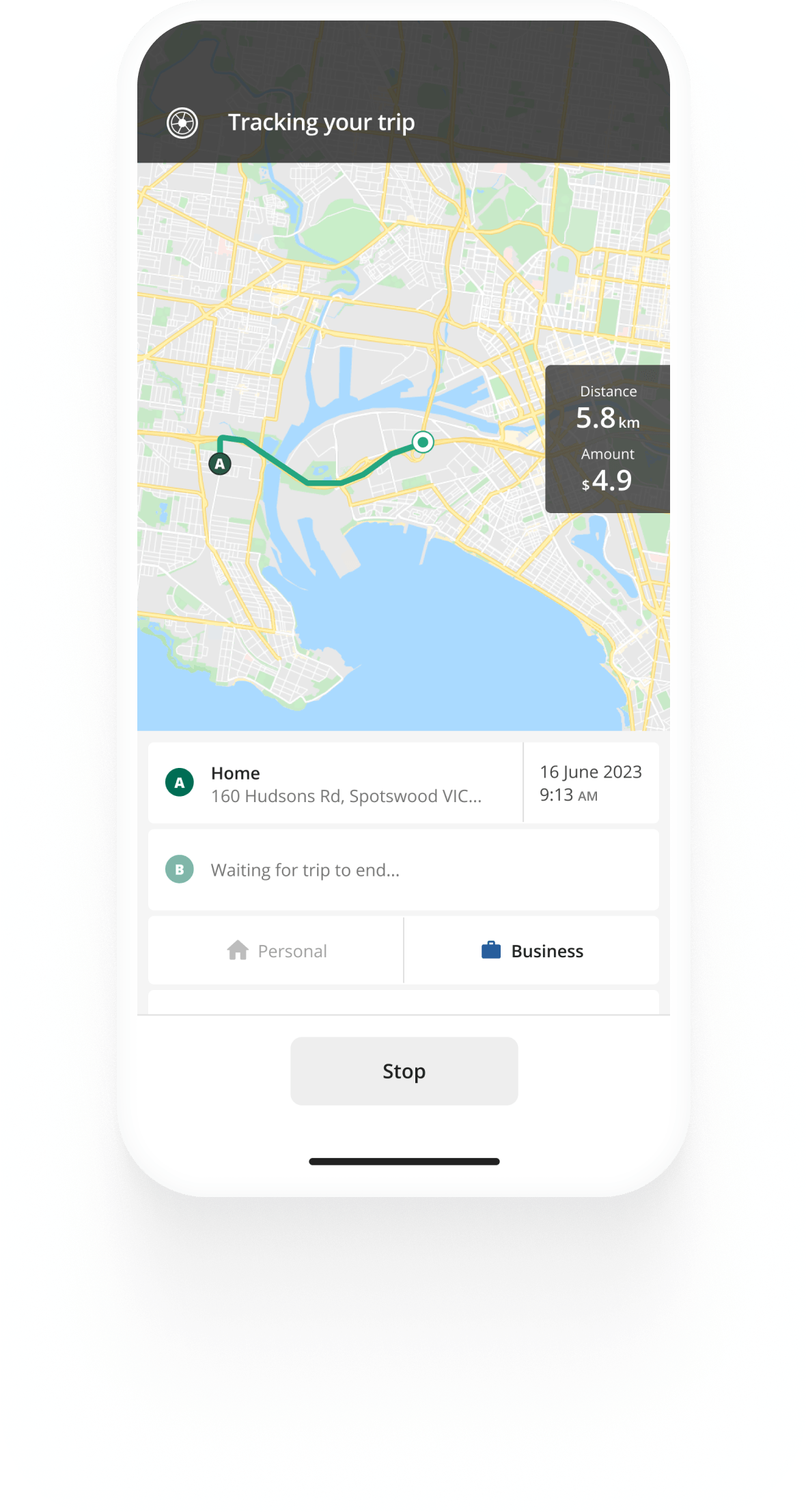Track mileage automatically
Get started.svg)
Can You Claim Parking on Tax?
Parking expenses are tax-deductible so long as they are work-related. This guide explains the types of parking fees you can claim and how to submit your claim with the ATO.
Types of parking tax deduction
You can claim parking expenses with the ATO if:
- You're parking for work purposes. For example, at a client site or job location.
- You're paying for work-related parking and are self-employed.
- If you're self-employed, you can deduct expenses for work-related parking fees. This includes travelling between work sites or client meetings.
Note that parking expenses for commuting from your home to your regular workplace are not deductible.


Kilometre tracking made easy
Trusted by millions of drivers
Automate your logbook Automate your logbook

Automatic mileage tracking and ATO-compliant reporting.
Get started for free Get started for freeWhen you can claim tax deductions on parking
You can only claim tax deductions on parking if you’re travelling somewhere other than the office for work purposes or you’re self-employed and travelling to a work site in your vehicle.
If you pay parking costs for travelling to your usual work premises, like an office (or home if you’re self-employed), you can’t claim a tax deduction with the ATO.
How to claim parking expenses
You can claim parking expenses as a tax deduction by the logbook method or the cents per kilometre method.
The logbook method
The logbook method allows you to claim all expenses you’ve incurred. This includes parking costs.
Here’s a quick breakdown of all records you need to keep to claim parking expenses with the ATO using the logbook method:
- The date of the expense
- The amount of the parking cost
- The location where you parked
- The reason for parking (i.e., client meeting, job site)
The cents per kilometre method
This method is more straightforward. However, it doesn’t let you claim your parking expenses directly.
It instead provides a set rate per kilometre you travel for work purposes. This covers all your car expenses, including parking. The current rate is 88 cents per kilometre for the 2024/2025 financial year.
Claims are limited to 5,000 business kilometres per car.
How much parking can you claim on tax without receipts?
Without receipts, you can't claim parking deductions using the logbook method. The only way to do so is by using the cents per kilometre method.
Claiming using the logbook method requires detailed records of your parking fees. However, the cents per kilometre method doesn’t require receipts, as the rate you can claim includes all your car expenses, including parking.
Can I claim airport parking on tax?
You can deduct airport parking expenses, but it's only possible using the logbook method. The expenses must also be directly work-related.
If you travel overseas or within Australia for business reasons and park at the airport, those costs can be deducted since your trip is solely for work purposes. However, if your airport visit combines work and leisure, you cannot claim any deductions. Remember to maintain thorough records of your airport parking expenses with receipts to support your deduction claim.
Maximising your parking tax deductions
To maximise your tax deduction, it's essential to maintain precise records and utilize the ATO logbook approach. Check out these handy pointers for improving your parking deduction.
Keep accurate records
Keep a detailed logbook of your business kilometres and all the relevant receipts ready for tax day. Note down where you parked and why, as the ATO may audit your expenses.
Choose the logbook method
While the cents per kilometre method is simpler, the logbook method allows you to claim for individual expenses - including a parking tax deduction.
Talk to a tax professional
If you’re feeling overwhelmed with complex tax laws, consider talking to a tax professional who will help you get the most out of your parking-related tax deduction.

Tired of logging mileage by hand?
Effortless. ATO-compliant. Liberating.
Latest posts
- Hiring Employees as a Sole Trader
- How to Write Off a Car for Business in Australia
- Employers' Guide to FBT-Exempt Benefits
Related posts
ATO Mileage Guide
25 June 2024 - 5 min read
Learn about the rules of reimbursing employees for their car expenses or deducting expenses as an employee or self-employed individual.
Hiring Employees as a Sole Trader
15 April 2025 - 5 min read
How to hire employees as a sole trader in Australia and the main obligations and considerations in doing so.
How to Write Off a Car for Business in Australia
15 April 2025 - 2 min read
Don't miss out on writing off a car for business - it may be the largest deduction you can claim as a business owner. See the 2024/25 ATO rules.

.svg)
.svg)